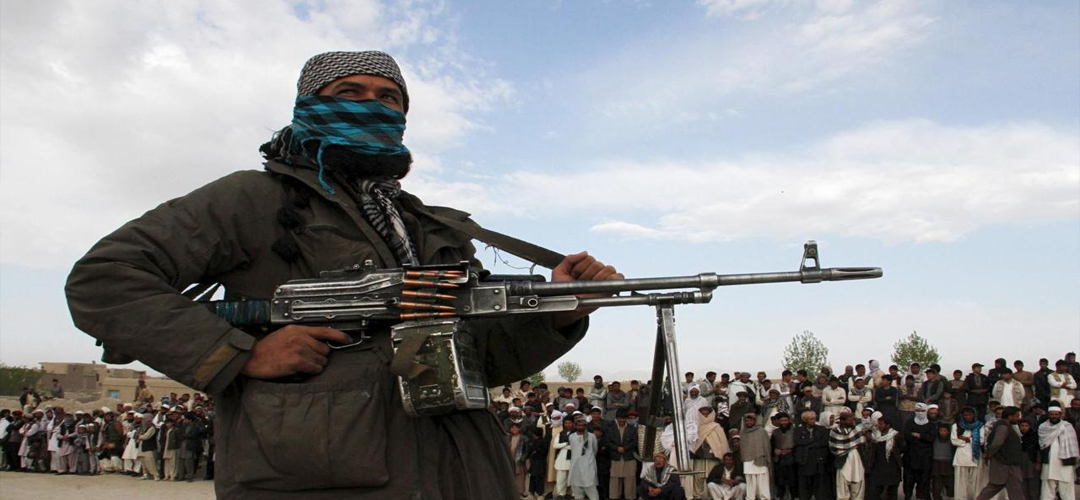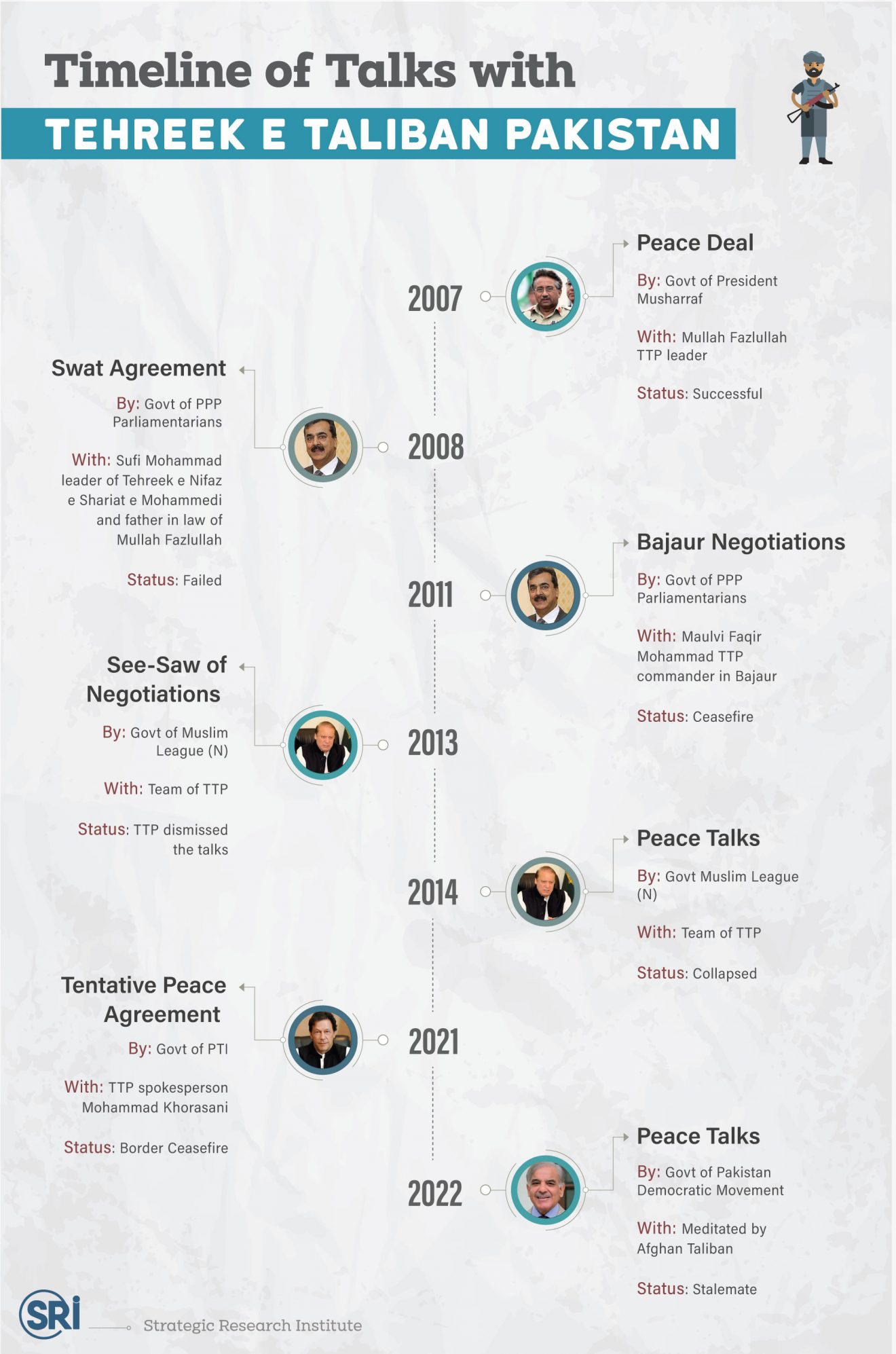OLD ENEMY, NEW THREATS
December 10, 2022 | Expert Insights

As the popular saying goes, you can change your friends but not your neighbours. South Asia could easily qualify as one region where good neighbourly sentiments are perhaps at a premium! While colonial legacy is mostly cited as the scapegoat, national interests and domestic compulsions have contributed to making this region a conflict hot spot.
Amongst all these external tensions, Pakistan’s ‘establishment’ (a nom de guerre for the Pak military) has excelled in fishing in troubled waters, both towards its east and the west. It has successfully raised and abetted proxy forces to wreak murder and mayhem in its neighbours’ backyards. Unsurprisingly, the same guns get trained inwards when the thirst for extremism and militancy cannot be quenched beyond its borders by a genie already out of the bottle.
Amongst the multitudes of state and non-state armed groups thriving in Pakistan's lawless badlands, the Tehrik-i-Taliban (TTP) has been the most troublesome. This is a fearsome and rabidly fanatic group, credited with some of the worst atrocities, like the Peshawar Army Public School massacre.
The indefinite cease fire between the TTP and the Pakistani state had been hammered together last October under the aegis of the Taliban government. It was to end this May but was extended for another four months.
The TTP opted out of the ceasefire on 28th November, citing a lack of commitment from the government’s side. The militant group also warned the government that it would resume its nationwide attacks. Two days after the warning, the group claimed responsibility for a bomb attack in Quetta that killed four people and wounded nearly 30.
It is quite evident that the TTP is following a well-charted route to confront the Pakistani state. It meticulously planned its new offensive to take advantage of the political chaos reigning over most of the country. TTP operatives have been allegedly snared by counter-terrorism police planning political assassinations and bomb attacks.
Background
The TTP is an umbrella organisation for radical militant groups operating on the Afghan-Pakistan border, formed in 2007. The group's main aim is to regain control over the northern tribal belt and impose Sharia law through armed insurgency. The group has remained operational mainly from Afghanistan and has close ties with the Afghan Taliban and Al Qaeda. The group’s operations within Pakistan are primarily based out of the Swat Valley region in Khyber Pakhtunkhwa (KP).
A series of high-level attacks carried out by the group between 2008 and 2015 forced the Pakistani military to conduct multiple anti-militancy operations along the Durand Line. The operations were brutal and suppressed TTP presence within the country significantly.
However, things changed when the Taliban took control of Afghanistan last year. TTP affiliates started expanding their activity into parts of KP immediately. Attacks on government entities resumed, forcing Imran Khan’s government to enter peace talks with the group in November 2021. The talks lasted for a month, following which the attacks continued. In January this year, the Pakistani Army eliminated key TTP leaders increasing tensions between both parties.
However, in an attempt to appease the TTP, the Pakistani government released more than 40 TTP cadres from custody in February. Peace talks were initiated between both parties by the Taliban government in June to bolster border security. However, the TTP continued operating its extortion rackets and conducted targeted attacks on tribal leaders within KP. On its part, the Pakistani military targeted senior TTP leaders in Pakistan and Afghanistan.

Analysis
While Pakistan may credit itself with the Taliban victory in Afghanistan, the strategic gains have come at a price. In fact, the return of the Taliban to Kabul has revitalised the TTP; some would call it a 'reverse proxy war' with Pakistan as the victim for a change!
Pakistan has witnessed a 51 per cent increase in terrorism since its protégé, the Taliban, wrested control across the Duran Line. With Afghanistan awash with leftover American weapons of all types, the TTP is re-arming itself with gusto, and its hosts are turning a blind eye. Its extortion rackets, largely in KP province but also targeting business communities in metros like Karachi, give it the financial ability to sustain a prolonged face-off with the authorities.
Pakistani security forces appear frustrated with the government's indecisiveness and ambivalent approach. The Army's kinetic strategy to crush the TTP has been somewhat blunted by the frequent changes in Islamabad's stance, in which their Generals have obviously been a party. Intermittent roadside bombings, standoff attacks on isolated posts and police stations and sniper shots have been draining the morale of the hard-pressed security forces. There is a feeling amongst the security establishment that the government's ineffectiveness is allowing TTP to strengthen its roots in the critically important Punjab and Sindh also.
The truth is that the Pakistani government is in no position to conduct full-scale ground operations to root out the TTP entirely. Dire socio-economic conditions and rising political tensions have distracted the government, and funds for waging a prolonged counter-insurgency campaign in the rugged terrain are not forthcoming. It is the centuries-old dilemma faced by all military powers trying the subdue the restive tribal frontier provinces between Pakistan and Afghanistan.
Therefore, the only recourse lies in allowing the Afghan Taliban to keep the TTP in control. This plays right into the hands of Kabul, keen to get meaningful concessions from Islamabad in the long-standing border dispute along the Durand Line.
Assessment
- Pakistan plunging back into internecine bloodletting is not something that its neighbours, especially India, should celebrate. Bloodshed, fighting and collapse of order tend to creep across national borders; Pakistan is the most vivid example of such a phenomenon.
- The prospect of nuclear-armed Pakistan facing an armed rebellion from Islamic zealots is a recurring western nightmare that Pakistan is well versed in tapping. The recent passing of the $ 450 million F16 maintenance deal with the U.S. for 'strengthening Pakistan's counter-terror capacity' could be a precursor of many other military (and economic) packages in the pipeline. India can do little but fume on the sidelines.
- The TTP and the Pakistani government have uncompromisable demands that can never be fulfilled. The government wants the TTP to disarm itself and follow the constitution, whereas the TTP wants control over the tribal areas. Thus, the confrontation is not going to end any time soon.








Comments